Market research has changed significantly over the years. In the past, traditional methods were used, with separate tools for each task. However, now we are in an era where artificial intelligence (AI) is changing the game. This blog will explain how AI-led tools are transforming market research, simplifying processes, and providing more comprehensive solutions.
My Initial Experience with Conventional Tools
In my early career in R&D, I conducted consumer researches using standard tools like Microsoft Word and Excel to create questionnaires, SPSS and Quanvert for analysis, and PowerPoint for presenting results. Each tool was essential but operated independently, creating a segmented process that typically required time to transfer data from one to another.
Transition to AI-Led Tools in Market Research
Market research has increasingly embraced AI tools, yet a fully integrated platform that spans the entire research process from design to presentation remains elusive. Recognizing this gap, I investigated AI-led tools that balance user friendliness with reliability. The following experiment demonstrates the advantages of current AI tools and the potential benefits of a unified AI solution in market research.
The Experiment: Understanding Winter Challenges for International Students in Toronto
The objective was to understand the adaptation, lifestyle changes, and economic impacts on international students in Toronto during the winter. The criteria for tool selection were AI-driven capabilities, user-friendliness, and reliability.
Step 1. Formulating Research Questions with ChatGPT: I began using ChatGPT to generate a list of pertinent research questions aligned with our objective.
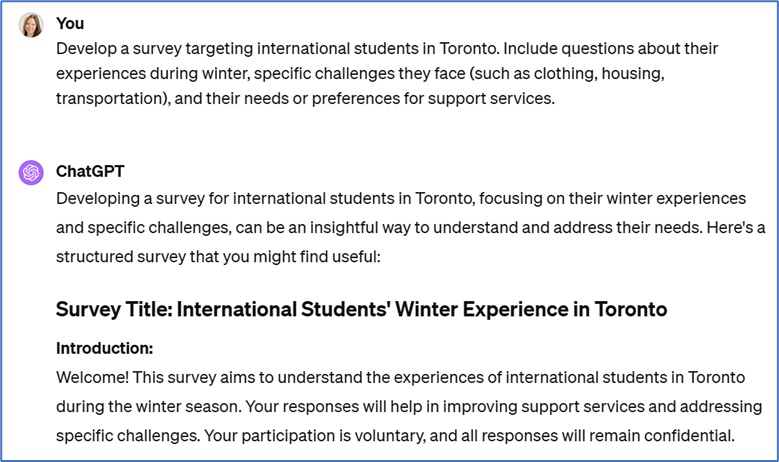
Learning: While ChatGPT provided a good starting point, it was necessary to filter and add unique questions, making the tool useful for drafting and sparking creativity.
Step 2. Survey Creation and Data Collection with Qualtrics: The survey, built using ChatGPT’s questions, was deployed on Qualtrics.
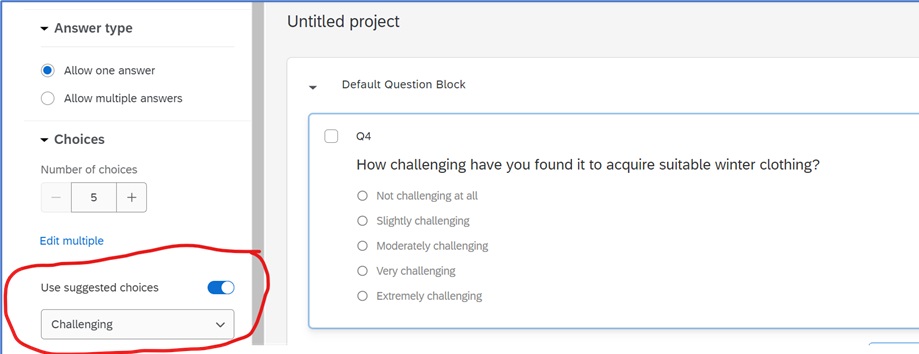
Learning: Qualtrics suggested appropriate scales for each question, which was helpful, but personal assessment for suitability was still crucial.
Step 3. Analysis with Google Data Studio: With the help of Schulich School of Business MMKG students and other friends studying in Toronto, responses were collected from international students. The collected responses were analyzed in Google Data Studio.
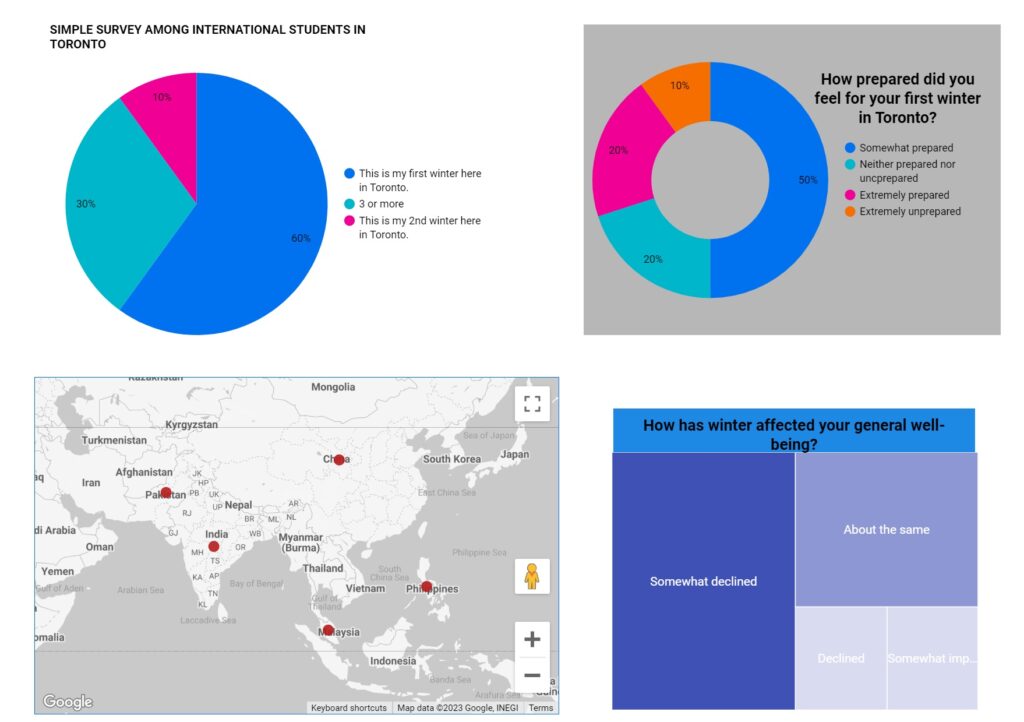
Learning: The tool not only analyzed data but also created interactive visuals. However, limitations in visualizing qualitative data and the need to add project background to presentations were noted.
Step 4. Presentation Enhancement with Beautiful.ai: The final presentation was crafted using Beautiful.ai.
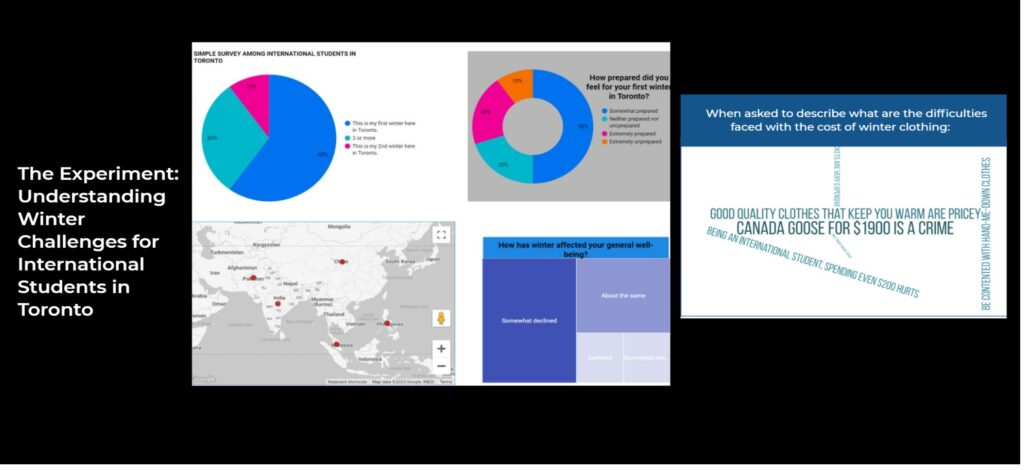
Learning: This tool allowed for a sophisticated and comprehensive presentation, integrating both data and qualitative insights.
Reflecting on AI in Market Research
This journey with AI tools like ChatGPT, Qualtrics, Google Data Studio, and Beautiful.ai was enlightening. These tools simplified each step and reduced the overall time, providing integrated insights beyond traditional methods.
Imagine if we had this tool that covered all of the steps, and all we needed to do was input our research objective. That would be the future of marketing—the future of marketing research!
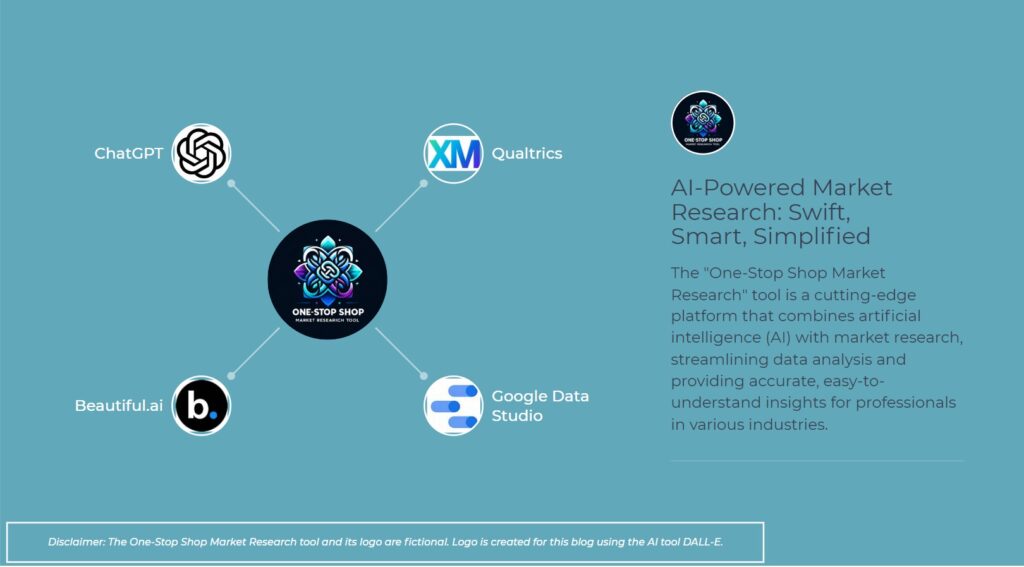
Note: The tools selected for this experiment represent only a tiny sample of available options and were chosen specifically for this blog. Although the primary aim was to demonstrate these tools, the research yielded intriguing insights, which I plan to explore further in a future blog.
Your Role in the AI-Driven Future of Market Research
Market research is changing, thanks to AI. I encourage all researchers, whether you’re just beginning or highly experienced, to embrace AI tools. They’re not just about improving your work; sharing your journey with these tools can inspire others. If you come across an all-encompassing AI tool, I’m eager to learn about it.
Dive into the next chapter of market research with AI.
LET’S CONNECT
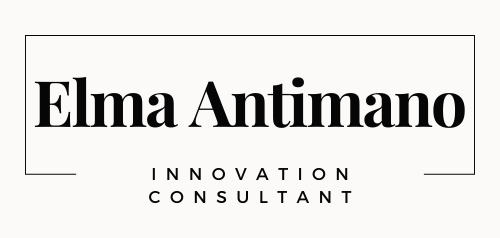
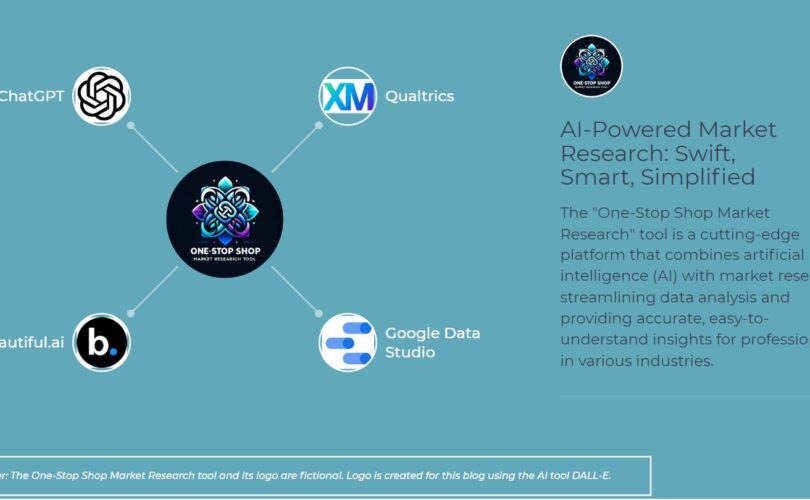


Exciting read on AI-powered market research! The efficiency and precision AI brings to data analysis are game changers for marketing. Eager to see more success stories and how it shapes the future of the industry.